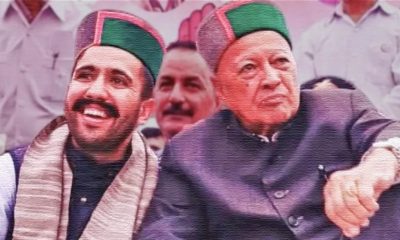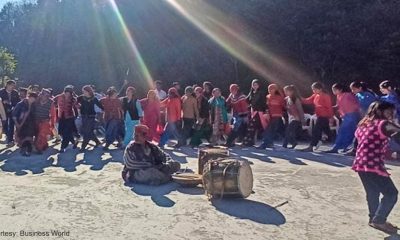Law & Justice
HP High Court Orders Video Conferencing For Recording Evidence
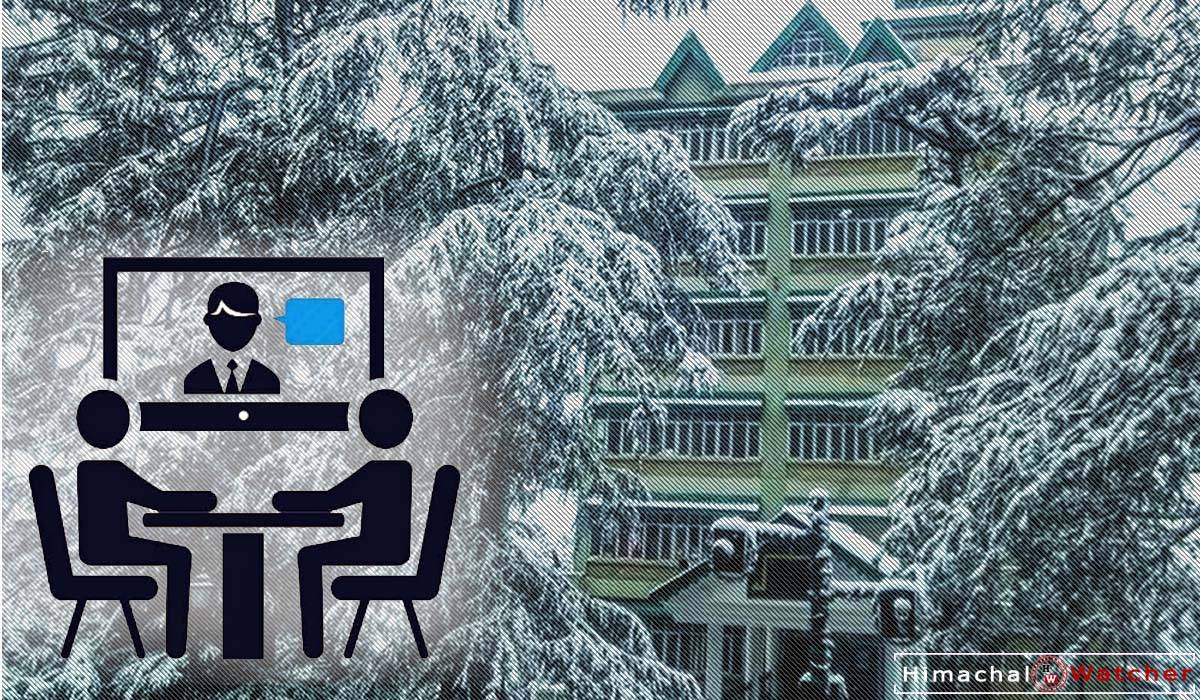
Shimla-Last week an order has been passed by Hon’ble Justice Tarlok Chauhan of Himachal Pradesh High Court for taking evidence through video conferencing, rather than having the physical presence of the doctor in the Courtroom.
The order is thoughtful and is important because Doctors often have to appear in courts as expert witnesses to give their testimony in various legal cases. This leads to the neglect of the patients and also consumes precious time and resources required by the hospitals.
To meet such contingencies where the attendance of witnesses cannot be procured without an amount of delay, expense or inconvenience, the Courts have been bestowed with ample discretion to dispense with such attendance and order videoconferencing for taking evidence. In exercise of this discretions, Courts are expected to adopt procedures which facilitate dispensing speedier and convenient justice.
However the practice is fairly alien to our State and remotely practised in our country, the reason being lack of infrastructure and a lack of initiative, nonetheless, there is a breath of fresh air from the recent order which has been passed by the Hon’ble High Court of H.P.
In a recent study, it was found that video conferencing as a substitute for physical presence in courts led to 43% drop in the monthly mileage of vehicles, 49% reduction in the fuel cost per month, and 28% savings in terms of time consumed for court duties. Satisfaction score for parameters of time consumed, physical strain, mental strain, communication with Honorable Judges, and overall experience was 87% through tele-evidence as compared to 31% with physical appearance. (Journal of Med. (2018). Tele-evidence 64(4), 206–211. doi:10.4103/jpgm.JPGM_243_17)
We have had very few instances where studies such as above have been utilised to undertake judicial reforms. Its only through efforts of innovative judges and lawyers that such practices have been adopted. For example in a similar case the apex court in 2003, in State Vs Doctor Praful B Desai, permitted recording of evidence of witness (doctor) staying abroad through video conferencing. The court stated;
“The Constitution and existing laws have to be looked into for discerning challenges thrown up due to emerging technological innovations. They have to be interpreted keeping this dynamic in mind”
Various guidelines are given from time to time by superior courts regarding the recording of evidence through video conferencing. Law applicable to such evidence recorded in courts includes 272 to 283 Cr.P.C. and Order 16, 18 etc. C.P.C. with some changes to avoid some technical issues.
By amendment in Cr.P.C in 2009, a proviso was added to subsection (1) of section 275 Cr.P.C. which states as follows:
“Provided that evidence of a witness under this subsection may also be recorded by audio-video electronic means in the presence of the advocate of the person accused of the offence”.
Video conferencing is extremely useful in criminal cases as the burden on the police significantly reduces, the task of ensuring safety and providing security to the accused and witnesses is a challenge when at the same time the force is required elsewhere for doing various routine functions. In the most infamous case of Md. Ajmal Kasab the court permitted Kasab to appear through video conferencing, as the issues of security and convenience weighed heavy on its head.
In another case, Bombay High Court taking suo-motu cognizance of a letter written by Shaikh Abdul Naeem, who was one of the accused in the Aurangabad Arms Haul case had directed the Maharashtra government to install video conferencing facilities in all courts in the state by the end of March 2017.
Last year in February 2018, it was reported that Jammu bench of Jammu and Kashmir High court for the first time heard 11 cases listed before Srinagar wing of High court through video conferencing.
The Division Bench of Madras High Court created history when it conducted the court proceedings over Skype from Chennai for the first time in a case related to 89 inmates of an unauthorized private children’s Home for girls run by Mose Ministries in Turuchi. In this case, girls rescued from the brothels in Delhi were repatriated and rehabilitated in their hometowns in several parts of India. To avoid any discomfort to them the court decided to take evidence through video conferencing.
Apart from India, there is a body of jurisprudence that has emerged in England through Roman Polanski’s case where the test of convenience, affordability and reliability of video conferencing has been accepted and is being routinely used by the courts. (Polanski v Condé Nast Publications Ltd [2005] 1 WLR 637.).
The order of the H.P high Court is hopefully the start for the building of infrastructure for this purpose in the State Courts and taking such an approach more often.
The great J.Bhagwati had once stated ;
“We cannot allow the dead hand of the past to stifle the growth of the living present. Law cannot stand still; it must change with the changing social concepts and values. If the bark that protects the tree fails to grow and expand along with the tree, it will either choke the tree or if it is a living tree, it will shed that bark and grow a new living bark for itself. Similarly, if the law fails to respond to the needs of changing society, then either it will stifle the growth of the society and choke its progress or if the society is vigorous enough, it will cast away the law which stands in the way of its growth. Law must therefore constantly be on the move adapting itself to the fast changing society and not lag behind”
Note: The order has been passed in an individual case and may not be construed to be a regular practice of the Hon’ble Court, the same depends upon case to case basis.
(The post was first published in https://lawumbrella.wordpress.com/ )
HW Community
Response of Judiciary to India’s Migrant Crisis During Lockdown- Part-II
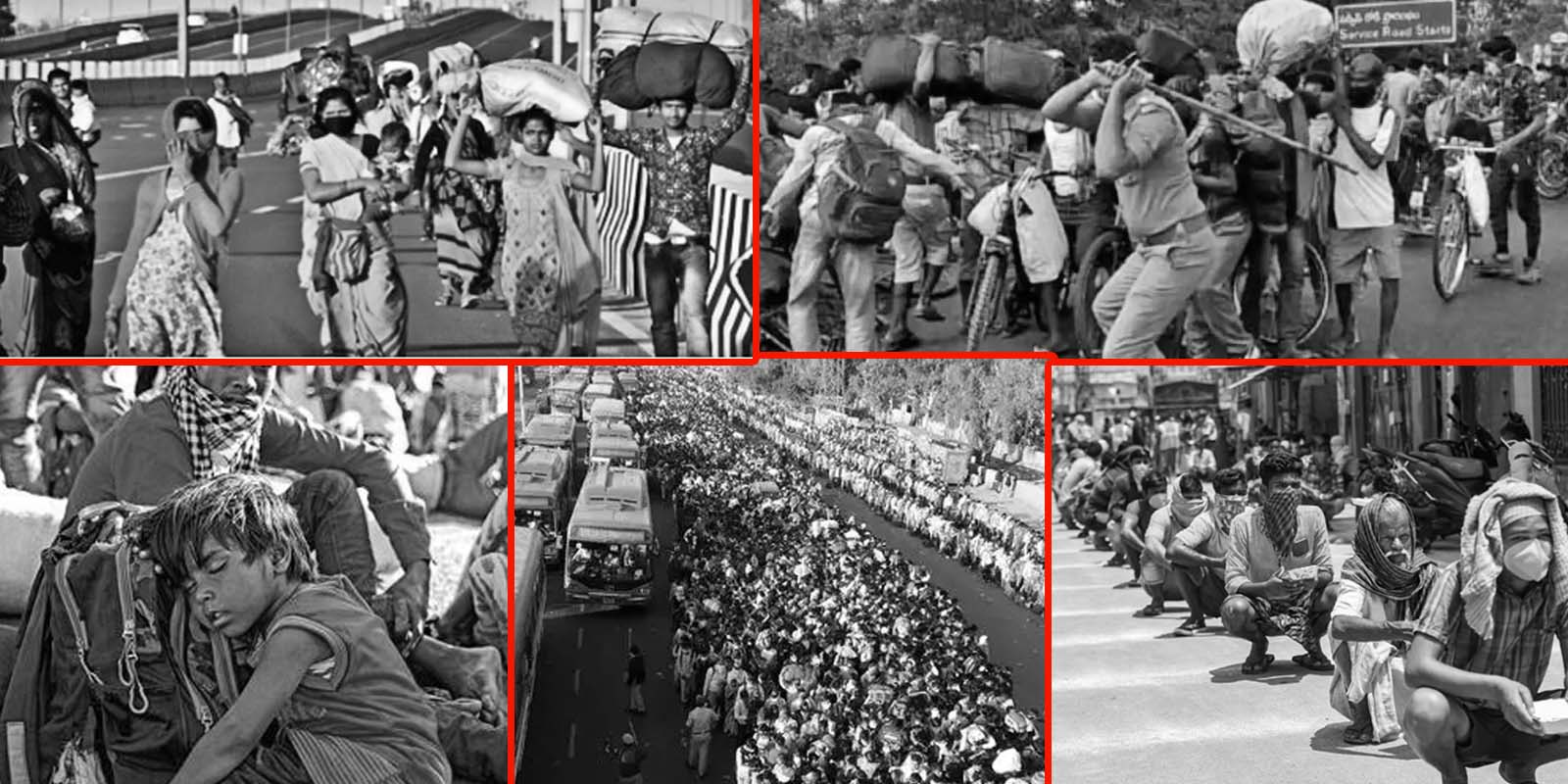
Shimla--The real competency test for the Nation isn’t ordering lock-down – it’s coming out of it. Some of the questions facing us amid these crises are; How civilized we are as a nation during this time of scarcity and fear? Are we helping the poor and needy or are we allowing them to be disproportionately impacted by this lockdown? Do we have adequate shelter homes for Migrant workers? Do we have enough food and transportation arrangement for them? Did our Government and administration use this expensive time of lockdown to prepare to “test and track” infected individuals, make provision for providing masks to the population, build isolation facilities, and other required medical facilities? These questions are haunting our nation in the present and will haunt us in the future too.
In this series of articles, we are discussing the role that judiciary has played during the time of this crisis. We have already gone through three orders of the Patna High Court.
Also Read: Response of Judiciary to India’s Migrant Crisis During Lockdown Part-I
Last month Madras High Court issued an order laced with emotion, something unusual for the courts. In a habeas corpus petition asking the government to produce 400 Tamil workers stuck in Maharashtra, a bench observed:
“One cannot control his/her tears after seeing the pathetic condition of migrant labourers shown in the media for the past one month. It is nothing but a human tragedy.
It is very unfortunate that those persons were neglected by all the authorities. The heart breaking stories are reported in the print as well as visual media that millions of workers were compelled to start walking to their native States with their little children carrying all their belongings over their head, surviving on the food provided by good Samaritans, as no steps were taken by the Governments to help those migrant workers.
..it is a pity to see the migrant labourers walking for days together to reach their native places and in the process, some of them had lost their lives due to accidents. The Government authorities of all the States should have extended their human services to those migrant labourers.”
In another case, the Andhra Pradesh High Court cited disturbing news reports to order the state government to take specific measures under seven different heads, including medical, transportation and food.
The court began the order thus:
“This court notices that the labour who have left their ancestral homes and villages and moved to the cities for better livelihood to ensure that all of us live in comfort are on the roads today.
If at this stage this court does not react and pass these orders, this court would be failing in its role as a protector and alleviator of suffering.”
The Karnataka High Court has directed the governments to decide on paying the transportation cost of workers going back to their villages and towns. It reminded the governments of the huge contribution the workers have made to the country’s development, insisting that the executive should come forward to help them at a time when they have lost their livelihoods.
TheDelhi High Court has also taken up this issue and has sought the response of the governments. Further, it has asked the government to take “all care” for repatriation of migrant workers, as and when they approach their concerned nodal officer and has directed
“So far as restoration of helpline number is concerned, we direct the Delhi government to ensure the uninterrupted working of their helpline number so that people may approach the Nodal Officers through the helpline numbers. The very purpose of helpline number is to help the people and, therefore, the same must be functional.”
The Gujrat High Court also took up the matter Suo Moto and observed:
“Everyday hundreds of migrant workers with children are seen in different parts of the state, more particularly on the highways. Their condition is pathetic. They are living in the most inhumane and horrendous conditions. As we have observed earlier, although all necessary steps are being taken by the state government, more modalities need to be worked out at the earliest to ease the suffering of the people at large.”
In another case the Uttrakhand High Court took notice of the Report filed by District Legal Services Authorities which stated that;
“…quarantine centers which have been established at Village level are the worst of the lot.”
No facilities in these centers to provide food to the inmates. Food is being provided by the villagers and the family members of the inmates.
In many of these quarantine centers where the inmates are more than 20 to 30, there are only 1 or 2 toilets. What is most shocking is that the hygienic condition of these toilets is also extremely poor.
Apart from this, many of the toilets which are in urban areas are in bad conditions, as these toilets are not being cleaned regularly.”
The Court directed the Secretary, Health and the Secretary, Disaster Management, Government of Uttarakhand, to pass appropriate orders to District Magistrates so that their Order dated 4th May 2020 be implemented in letter and spirit and so that there are enough of funds with the “Gram Sabhas” to manage and run these quarantine centres. Secretary, Health, Government of Uttarakhand and the concerned District Magistrate were directed to remove all the shortcomings in these quarantine centres.
Court also observed,
What is absolutely necessary is to maintain the quarantine centers at village level, for which proper funds be provided to the “Gram Sabhas”, as contained in the Government Order dated 04.05.2020, for which there has to be a proper coordination between District Magistrates and the panchayat level officers and the elected representatives of the people.
Matter be listed on 17th June 2020. [Sachdanand Dabral v. UOI, WP (PIL) No. 58 of 2020].
In another case, the Allahabad High Court ordered the State Government to ensure that persons who have completed their quarantine period be released from the Quarantine Centres provided they have tested negative. The Order stated;
‘Persons, who have completed their quarantine period and have tested negative can not be further detained in the Quarantine Centers against their wishes. It would be in violation of personal liberty under Article 221 of the Constitution of India.’
The Bench also directed the Chief Secretary, State of Uttar Pradesh to set up a three members committee in every district to ensure smoother, greater and more effective functioning of the Quarantine Centers.
(The post was first published in https://lawumbrella.wordpress.com/ )
(To Be Continued)
HW Community
Video of Child Trying to Wake up His Dead Mother- Court Takes Cognizance
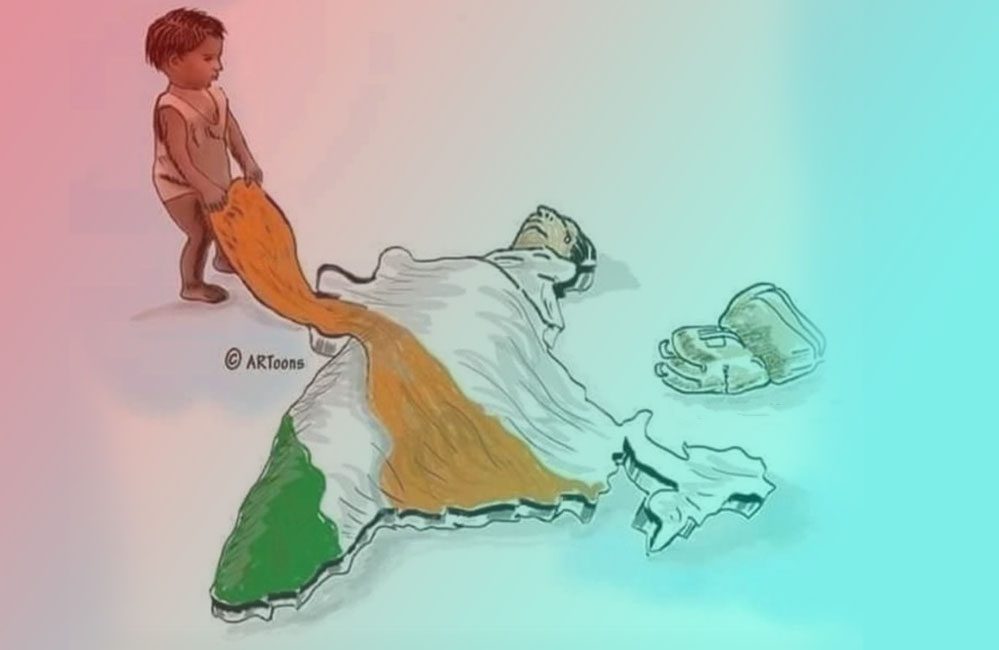
Shimla-A Division Bench headed by Sanjay Karol. CJ., had taken suo motu cognizance of a news article of the newspaper Times of India dated 28th May 2020 wherein an item reads as “Video of a child trying to wake up his dead mother goes viral.”
Justice S. Kumar invited the attention of Chief Justice of the Court to a newspaper article wherein the portion talks about a “Video of Child trying to wake up his dead mother goes viral.”
A video of a toddler trying to wake up his dead mother lying on a railway platform has gone viral on social media. The child can be seen removing a shawl covering his mother’s body.
The Bench stated if the items as stated in the news report are correct of which it has no reason to disbelieve. This warrants intervention in exercise of jurisdiction under Article 226 of the Constitution of India, taking suo motu cognizance of the said news item.
Bench laid the following issues for immediate attention:
-
Whether the postmortem of the dead-body was conducted? If yes, what was the cause of death? Did the lady actually die of hunger?
-
Was she travelling alone with her sibling ? If not, who all were her companions,
-
What action stands taken by the law enforcing agencies,
-
Were the relatives of the deceased informed of the incident,
-
Were the last rights of the deceased performed as per the custom, tradition and the instructions issued by the government, and
-
Above all who is now taking care of the children/sibling(s), who unfortunately lost their mother in these times of distress.
Bench before giving any order directed Additional Advocate General-IX to obtain instructions on the above issues.
The AG stated that the news report is partially incorrect. Deceased was mentally unstable and had died a natural death during the course of her journey. District Administration facilitated by providing an Ambulance up to the place of destination. The orphaned child is in safe custody and guardianship of the sister of the deceased.
Further AG stated that even though the child is safe and secure, yet he shall personally pursue the matter with the authorities who would again reach out to the family, enquiring any need of assistance.
The matter was again taken up on 3rd June and the following order has been passed:
Our concern, as indicated in earlier order dated 28th May, 2020, have not been adverted to and as such, as prayed for, we grant three days’ time to the respondents to file an affidavit. Let needful be done on the affidavit of the Additional Chief Secretary, Department of Home, Government of Bihar.
The matter is now Listed for 8th of June, 2020.
(The post was first published in https://lawumbrella.wordpress.com/ )
HW Community
Academic Merit of “Doctors” Must Reckon Services Rendered for ‘Common Good’
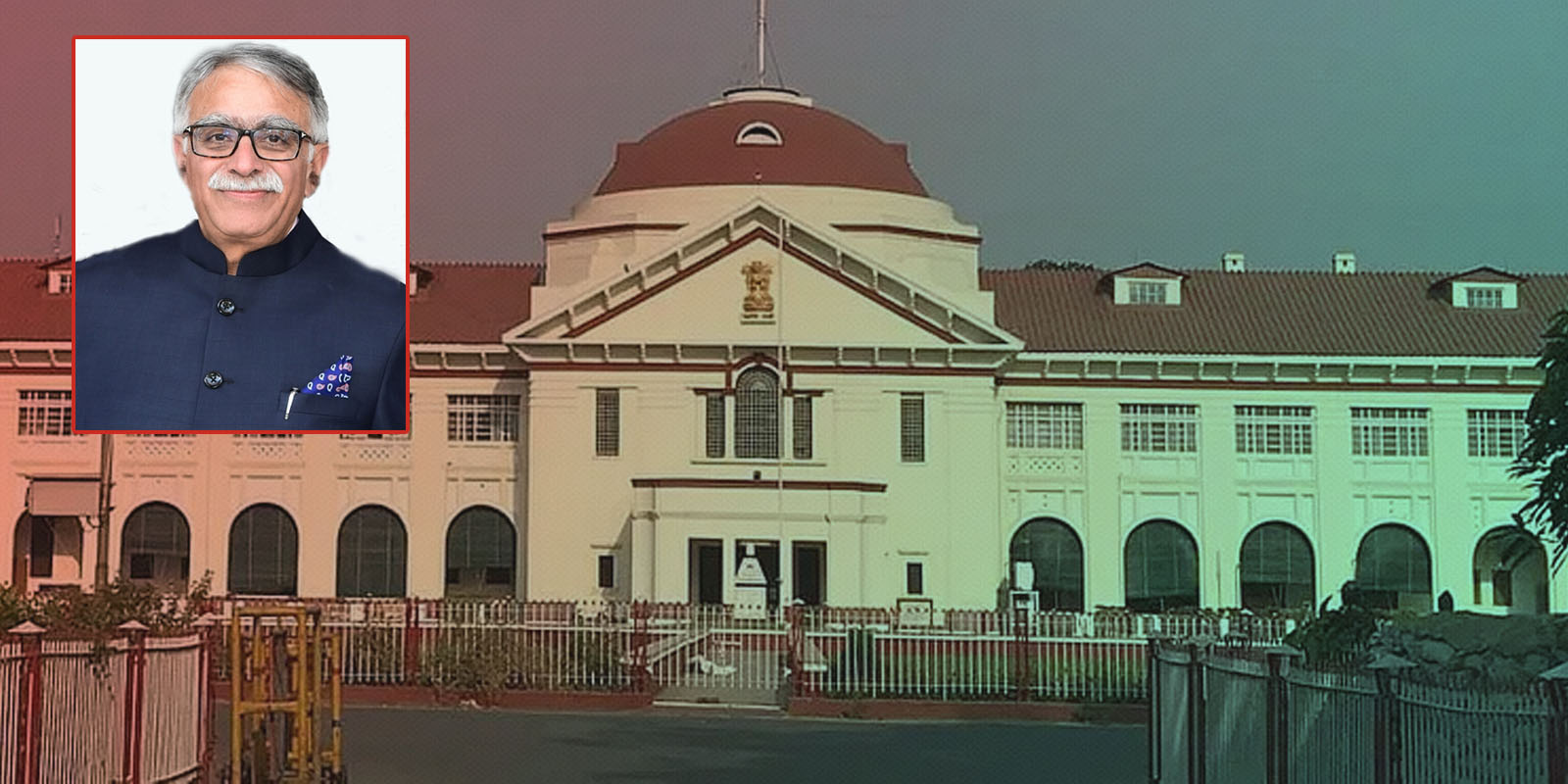
Shimla-For securing ‘Right to Health’ and medical facilities by ensuring an adequate number of doctors in the rural areas, an important order has been passed by the ‘Patna High Court’ in the current situation of a Pandemic. The Order is in line with judiciary’s endeavour to fulfil its obligation towards securing social justice for the poor and especially for the people living in rural parts of our country.
The Court has essentially said that to determine the academic merit of (Doctors) candidates, merely securing high marks in NEET is not enough. The academic merit of the candidate must also reckon the “services rendered for the common or public good.” Having served in rural and difficult areas of the State for one year or above, the incumbent having sacrificed his career by rendering services for providing healthcare facilities in rural areas deserves incentive marks.
A Division Bench comprising of Chief Justice Sanjay Karol ordered,
“The Chief Secretary, Government of Bihar shall, with the normalization of the of the current Pandemic COVID-19, ensure that vacancies in the rural/ remote/ difficult areas are filled up to the maximum extent possible, either by transfer or expediting the process of recruitment.”
The court took notice of the fact that in the state out of 11645 sanctioned posts of doctors, 8768 were lying vacant, out of which 5674 fell in the difficult/remote/rural areas. And despite the same, Government chose to not grant incentive of weightage in marks in NEET test, to the doctors posted in these areas. It went on to observe that the State Government is “neglecting” rural areas by taking these measures and catering to ‘vested interests’ by only posting the majority of the doctors in urban areas.
The Court directed the concerned authorities to redraw the merit list strictly by the law which in the instant case were ‘two notifications’ issued by the State. The said notifications granted benefit for service in rural areas but was not being implemented.
In the stand taken in court, the State had justified its decision of not granting the above benefit stating that “the merit would stand compromised and would adversely affect the in-service doctors posted at urban areas.”
However, the Division Bench disagreed, stating;
“Can a Welfare State even adopt such a stand more so in the absence of any plea or material to indicate absence of doctors or higher percentage of vacancy of the posts in the urban areas?”..
…”Incentivizing posting of doctors/medical staff in the specified areas can only be in public interest and for public good and not the other way round. Under the Constitution all power must be exercised to subserve public interest, for public good and for a public cause. If only such benefits are accorded would the Doctors voluntary opt to serve the poor, the needy, the deprived and the marginalized ones living in the remotest corner of the State.”
The Division Bench opined that if the State Government has found that circumstances warranted the need for such incentives, “then the State could not and should not deny such incentive.”
“Undoubtedly discretion of according benefits, vests with the Government, but then, its exercise has to be based on some rational and not in an arbitrary and capricious manner. There is no logic of depriving the doctors posted in the rural areas of such benefits.”
The Court went on to pull up the Bihar Government for having admitted, through notifications issued in 2013 and 2014, that there were difficult/ remote areas in need of doctors on the one hand while denying to provide incentives to fill in these vacancies on the other.
“Strangely, if not collusively, it has taken a specious plea of interpreting such a Notification limited only to the identification of areas in terms of the Regulation and not taking a decision conferring benefits in terms thereof. Such a stand is both immoral and illegal.”
“The power to grant incentive is discretionary, but then having done so, State cannot be allowed to turn around and contend to the contrary, notwithstanding as to whether such benefit was neither claimed nor conferred upon any individual. Mere non-enforcement of a right by an individual or its non-conferment upon by the State would also not be a reason for the State to adopt such a dubious plea.”
The Court proceeded to dismiss the State’s appeals and issued the following directions:
- All candidates who have participated in the selection process, including the writ petitioners and are otherwise eligible, would be entitled to the benefit of 2013 and 2014 Notifications issued by the Government of Bihar;
- Provision in the prospectus to the contrary is held to be illegal and void
- The Bihar Combined Entrance Competitive Examination Board shall redraw the merit list strictly in accordance with law by granting benefit of 2013 and 2014 Notifications after accounting for the certificates/proof of eligibility, for grant of incentives in terms of Regulation 9(IV) issued by the MCI.


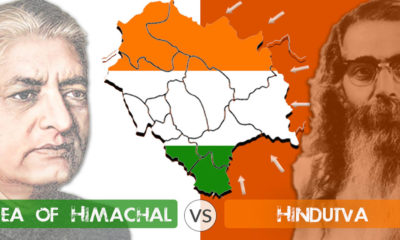

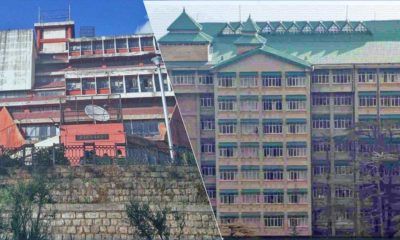

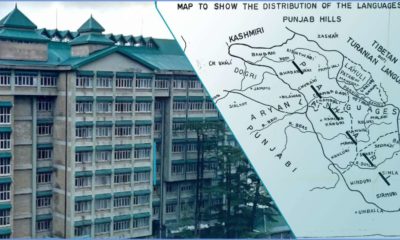







 Home Decor Ideas 2020
Home Decor Ideas 2020